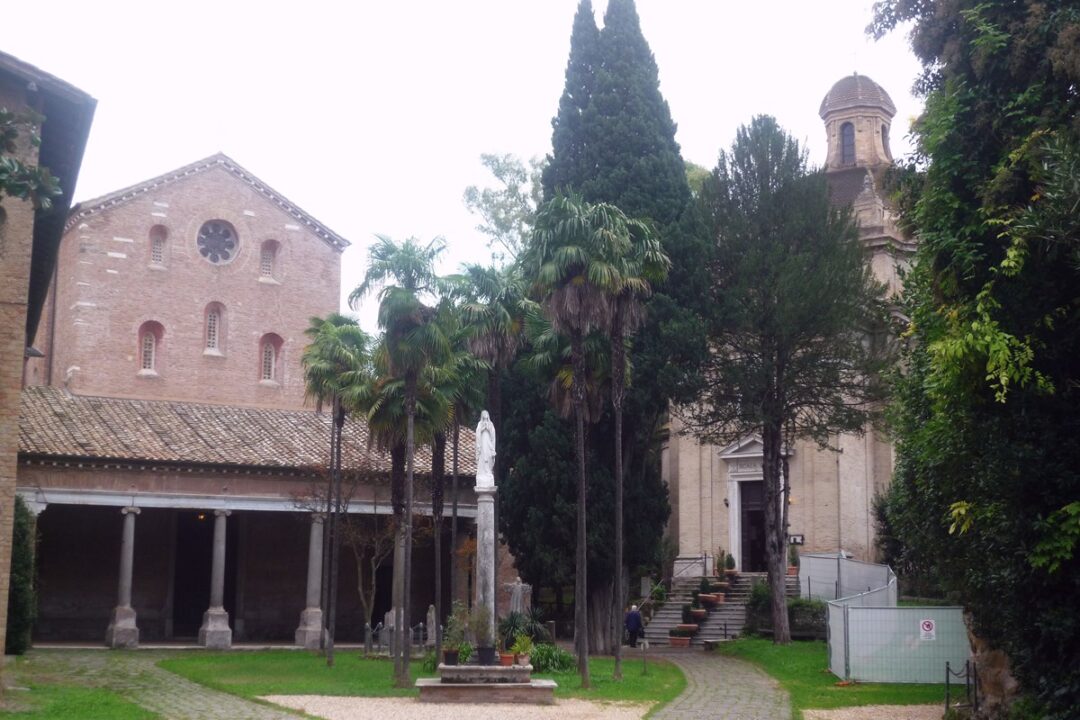Protestant, Orthodox and Catholic Christians in Europe recently took another big step to building closer relationships with each other. This report is adapted from a report by Luca Maria Negro for “Evangelical Worship” on Radio RAI 1.
Twelve days ago, in the very special setting of the Abbey of the Tre Fontane in Rome, Orthodox Archbishop Nikitas of Thyateira and Great Britain who is the president of the Conference of European Churches (an ecumenical organization which brings together Protestants and Orthodox) and Gintaras Grusas, the Catholic archbishop of Vilnius who is the head of the Council of European Bishops’ Conferences (CCEE), signed an updated version of The Ecumenical Charter – Guidelines for the Growing Cooperation among the Churches in Europe. The original Ecumenical Charter was signed in 2001.
The Ecumenical Charter is a short document that indicates a series of “commitments” that Europe´s Protestant, Orthodox, and Roman Catholic churches are making to advance ecumenical collaboration on the “Old Continent.” In the first Ecumenical Charter in 2001, there were 26 “commitments”; in the initial draft of the new updated version, made public in July 2024, the number of commitments had more than doubled to 55. However, during the following months, Europe´s churches and ecumenical organizations sent in about 70 reactions and proposals for changes. As a result, the number of “commitments” rose to 68. Taken together, these “commitments” express the shared intention of the European churches to make ecumenism not an episodic but a continuing, even daily concern in their life together.
The new Ecumenical Charter, like its predecessor, is a streamlined document, but it has been enriched with new paragraphs dedicated to young people, migrants and refugees, and the problems posed by new technologies. Of particular note are: a “commitment” to read and study the Bible together and to encourage ecumenical biblical translations; a “commitment” to denounce all abusive behavior that takes place in churches and to call to account the guilty and those who protect them; and a comprehensive “commitment” to renounce proselytism towards Jews, to oppose Islamophobia, to promote dialogue with Muslims, to promote intercultural and interreligious education in support of mutual respect and peaceful coexistence and to advocate and facilitate nonviolent approaches to conflict resolution.
The new Charter is not perfect. Unfortunately, it gives little attention to the need to strengthen the position of women in the Church and in society and does not address at all the need for the churches to welcome sexual minorities in their worship and community life. It is also too bad that, unlike the first version of the Ecumenical Charter, which was signed at European ecumenical meeting in Strasbourg, the signing of the new Charter took place in a substantially private meeting. Even so, the good news is that new Ecumenical Charter expresses a “commitment” to “encourage and support ecumenical grassroots networks.”
The author, Luca Negro, is an Italian Protestant pastor who has served as a local parish pastor, as well as a press officer for the Conference of European Churches and as president of the Federation of Protestant Churches in Italy.
Over many decades, Waldensians have been active participants in the Ecumenical Charter process.

